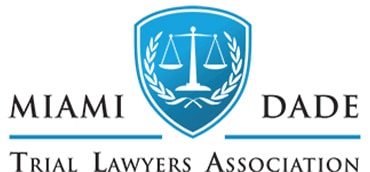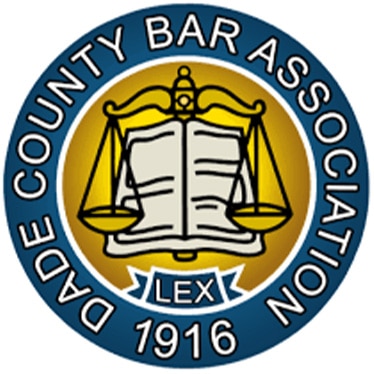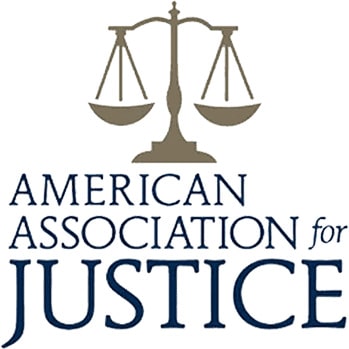If you have been diagnosed with cancer after using Zantac, you may need a Zantac lawyer to help you seek compensation through Zantac cancer lawsuits. This article will guide you through the process of filing a claim, understanding your eligibility, and finding the right legal representation.
Key Takeaways
- Zantac, containing ranitidine, was recalled by the FDA in April 2020 due to the detection of NDMA, a probable carcinogen, in its formulations, resulting in significant health concerns.
- Long-term use of Zantac has been linked to various cancers, including stomach, liver, and kidney cancer, raising alarming health risks for users and leading to numerous Zantac cancer lawsuits. These lawsuits allege that the medication is linked to cancer due to harmful additives like NDMA, with significant developments in litigation, such as recent settlements and the acceptance of thousands of claims.
- Individuals seeking to file a Zantac lawsuit must provide proof of Zantac use and medical records indicating cancer diagnosis, with legal representation crucial for navigating the complexities of the litigation process.
Understanding Zantac and Ranitidine for Gastroesophageal Reflux Disease
Zantac, a name once synonymous with relief from heartburn, acid reflux, and stomach ulcers, has a story that begins with its active ingredient, generic ranitidine. Approved by the FDA in 1983, Zantac quickly became one of the most commonly prescribed drugs for treating conditions like gastroesophageal reflux disease (GERD) and chronic heartburn. The generic name for Zantac is ranitidine, a medication that works by decreasing stomach acid production, thus alleviating symptoms such as stomach pain and difficulty swallowing.
Ranitidine belongs to a class of drugs known as histamine or H2 blockers, which were revolutionary in their ability to treat heartburn and related conditions. Available both as a prescription and over-the-counter medication, Zantac was trusted by millions for its effectiveness. People taking Zantac often found quick relief from the discomfort of acid reflux and stomach ulcers, making it a staple in many households.
However, the convenience and widespread use of Zantac and other ranitidine products masked a darker issue. Over time, concerns began to surface about the stability of ranitidine and the potential health risks associated with its long-term use. Despite its popularity, the safety of Zantac would soon come under intense scrutiny, leading to significant legal and health implications for its users.
Understanding Zantac’s background helps explain its recall and the resulting lawsuits. Zantac’s story is about more than just a medication; it’s about the trust millions placed in a product that ultimately posed serious health risks.
FDA Recall of Zantac
The turning point in Zantac’s story came on April 1, 2020, when the FDA announced the recall of all ranitidine medications from the U.S. market due to safety concerns. This recall was prompted by the detection of N-nitrosodimethylamine (NDMA), a probable human carcinogen, in Zantac samples. The FDA’s investigation revealed that NDMA levels in some Zantac products exceeded the acceptable daily intake limit by over 30,000 times, posing significant cancer risks to users. This recall also led to numerous Zantac cancer lawsuits, with legal claims alleging that the medication is linked to various types of cancer due to harmful additives like NDMA.
The instability and degradation of ranitidine over time were found to significantly increase NDMA levels, leading to the withdrawal of Zantac from the market. Major pharmacy retailers like Walmart, CVS, and Walgreens responded swiftly, halting the sales of all ranitidine medications and pulling Zantac products from their shelves. This action by the FDA and retailers underscored the severity of the contamination and the potential health hazards associated with taking Zantac.
Sanofi, the manufacturer of Zantac, along with other companies like Sandoz, Apotex, Perrigo, and GlaxoSmithKline, issued voluntary recalls of their Zantac and ranitidine products following the FDA recall Zantac findings. The recall affected not only prescription medications but also over-the-counter versions, reflecting the widespread concern over NDMA contamination.
The FDA’s advisory to the public was clear: stop taking ranitidine immediately and consult healthcare professionals for alternative treatments. Driven by consumer and healthcare professional concerns, this recall highlighted the need for vigilance in drug safety and the severe impact of defective drugs on public health.
Health Risks Associated with Zantac Use
 The health risks associated with Zantac use are alarming. NDMA, the contaminant found in Zantac, is a known carcinogen that can cause various types of cancer. Long-term use of Zantac has been linked to an increased risk of developing cancers such as stomach, kidney, bladder, liver, ovarian, and prostate cancer. The presence of NDMA in ranitidine medications like Zantac raises significant health concerns.
The health risks associated with Zantac use are alarming. NDMA, the contaminant found in Zantac, is a known carcinogen that can cause various types of cancer. Long-term use of Zantac has been linked to an increased risk of developing cancers such as stomach, kidney, bladder, liver, ovarian, and prostate cancer. The presence of NDMA in ranitidine medications like Zantac raises significant health concerns.
Exposure to NDMA can lead to severe health complications beyond cancer. It is hepatotoxic, meaning it can cause significant liver damage, and has been associated with side effects such as stomach pains, nausea, vomiting, dizziness, and jaundice. These symptoms underscore the broader health risks of Zantac’s chemical contamination.
Esophageal cancer and lung cancer in non-smokers are also among the cancers potentially linked to Zantac use. The classification of ranitidine as a carcinogen further underscores the gravity of these health risks.
For many Zantac users, these revelations have led to a profound sense of betrayal and fear for their health.
The impact of NDMA exposure on liver and kidney function is particularly concerning. Over time, reduced liver and kidney function can lead to chronic health issues, compounding the difficulties faced by those affected by Zantac. Recognizing these health risks is essential for Zantac users, emphasizing the need to seek medical advice and consider legal action.
Eligibility for Filing a Zantac Lawsuit
Determining eligibility for a Zantac lawsuit is crucial for those impacted by the drug’s adverse effects. To file a successful claim, individuals must provide proof of purchase and medical records indicating the prescription and use of Zantac. These documents serve as essential evidence to demonstrate both the use of the medication and a subsequent cancer diagnosis.
Individuals who have taken Zantac for at least one year or in higher quantities are more likely to qualify for a lawsuit. This usage period is crucial in establishing a link between the drug and the development of cancer. Quickly contacting a pharmaceutical liability lawyer helps discuss eligibility and meet filing deadlines for Zantac cancer lawsuits.
Zantac legal experts can access critical scientific data and expert witnesses, significantly strengthening a claimant’s case. Seeking legal representation ensures a thorough investigation of claims and increases the chances of receiving deserved compensation.
Types of Cancer Linked to Zantac
The types of cancer linked to Zantac use are diverse and concerning. NDMA contamination in Zantac has been associated with an increased risk of several cancers, including:
- Stomach cancer
- Liver cancer
- Kidney cancer
- Bladder cancer
- Esophagus cancer
These cancers can have a profound impact on individuals’ lives, requiring extensive medical treatment and significantly affecting quality of life.
In addition to these cancers, there have been claims linking Zantac use during pregnancy to testicular cancer in offspring. This potential risk highlights the far-reaching implications of NDMA exposure from Zantac, affecting not only the users but also their families.
Knowing the specific types of cancer linked to Zantac is vital for those contemplating legal action. This knowledge clarifies the health risks and emphasizes the need for medical advice and legal representation if diagnosed with cancer after using Zantac.
The Burden of Proof in a Zantac Lawsuit
In a Zantac lawsuit, the burden of proof lies with the plaintiff, meaning you must demonstrate that Zantac was the direct cause of your cancer diagnosis. This involves providing compelling evidence to establish three key elements:
- Causation: You need to show that taking Zantac led to your cancer diagnosis. This can be supported by medical records, expert testimony, and scientific studies that link Zantac to cancer.
- Defect: It’s crucial to prove that Zantac was defective, whether in its design, manufacturing, or warning labels. Evidence might include documentation showing that the manufacturers knew or should have known about the risks of NDMA contamination.
- Negligence: Demonstrating that the manufacturer was negligent involves proving they failed to warn consumers about the potential risks. This can be shown through internal documents, marketing materials, and testimony from company employees or executives.
To meet this burden of proof, plaintiffs often rely on a combination of:
- Medical Records and Expert Testimony: These help establish a direct link between Zantac use and the cancer diagnosis.
- Scientific Studies: Research and studies that highlight the connection between Zantac and cancer are critical.
- Internal Documents: Evidence from the defendant’s records can show what the company knew about the risks.
- Warning Labels and Marketing Materials: These can demonstrate whether the manufacturer failed to provide adequate warnings to consumers.
Successfully navigating these elements requires the expertise of experienced Zantac attorneys who can gather and present the necessary evidence to build a strong case.
Contact us today for your free & confidential case review. Our team will help you get the compensation that you deserve.
Steps to File a Zantac Lawsuit
Filing a Zantac lawsuit involves several crucial steps. The initial step is to determine when you started and stopped taking Zantac, which is vital for building a strong case. Collecting enough evidence to prove key elements like the manufacturer’s liability and the connection between Zantac use and cancer is crucial. Zantac cancer lawsuits highlight the importance of gathering evidence promptly to support legal claims against manufacturers.
The burden of proof in civil claims related to Zantac use is the preponderance of the evidence, meaning it must be more likely than not that the drug caused the harm. Negligence is not required to prove a claim against Zantac’s manufacturer if elements of strict product liability are established.
If a Zantac lawsuit goes to jury trial, the process can take between two to four years. Having a lawyer is essential to navigate the legal complexities and conduct a thorough investigation. Experienced Zantac lawyers assist in gathering necessary evidence and building a strong case against drug manufacturers, ensuring victims receive deserved compensation.
What to Expect from a Zantac Lawsuit
If you or a loved one has been diagnosed with cancer after taking Zantac, understanding the lawsuit process can help you prepare for what lies ahead. Here’s a step-by-step overview of what to expect:
- Initial Consultation: Your journey begins with a meeting with a Zantac attorney. During this consultation, you’ll discuss your case, including your medical history and Zantac use, to determine if you have a valid claim.
- Case Evaluation: Your attorney will conduct a thorough evaluation of your case, assessing the strength of your claim and estimating the potential damages you may be entitled to.
- Filing a Lawsuit: If your attorney believes you have a strong case, they will file a lawsuit on your behalf against the Zantac manufacturer. This legal action formally begins the process of seeking compensation.
- Discovery: Both sides will engage in discovery, a phase where they exchange information and gather evidence. This can include medical records, expert reports, and internal documents from the manufacturer.
- Settlement or Trial: Many cases are settled out of court, but if a settlement cannot be reached, your case may proceed to trial. During the trial, a jury will hear the evidence and render a verdict.
- Damages: If your lawsuit is successful, you may be awarded damages to cover medical bills, lost wages, pain and suffering, and other related expenses.
Working with an experienced Zantac attorney is crucial throughout this process. They can guide you through each step, ensuring you understand your rights and options. Their expertise in handling defective drug lawsuits can significantly increase your chances of receiving the compensation you deserve for the harm caused by Zantac.
Financial Compensation in Zantac Lawsuits
Financial compensation in Zantac cancer lawsuits can cover a range of expenses, including lost wages, medical bills, legal costs, and court fees. For those who have lost loved ones due to Zantac-related cancer, wrongful death claims may include different types of damages to compensate for their loss.
A notable example of financial compensation is Sanofi’s $100 million settlement, which averages around $25,000 for each of the 4,000 claimants involved. This settlement primarily addresses claims in U.S. states, excluding those consolidated in Delaware. The exact terms of such settlements are often kept confidential, but they provide a sense of the potential compensation available to affected individuals.
Factors influencing the value of a Zantac cancer lawsuit settlement include the type and aggressiveness of the cancer, the stage at diagnosis, and the required treatment. Strong scientific evidence linking Zantac to cancer can also significantly impact settlement outcomes. Zantac attorneys play a crucial role in negotiating settlements, potentially providing faster compensation compared to a lengthy trial.
The Role of Zantac Attorneys
 Zantac attorneys are indispensable in navigating the legal complexities of filing a Zantac cancer lawsuit with a Zantac cancer law firm. Dedicated legal representation is crucial for individuals diagnosed with cancer after using Zantac, as proving causation often requires expert testimony and a thorough understanding of the legal landscape.
Zantac attorneys are indispensable in navigating the legal complexities of filing a Zantac cancer lawsuit with a Zantac cancer law firm. Dedicated legal representation is crucial for individuals diagnosed with cancer after using Zantac, as proving causation often requires expert testimony and a thorough understanding of the legal landscape.
Defective drug attorneys assist victims by guiding them through the process, from gathering evidence to filing claims and negotiating settlements. Firms like Mausner Graham Injury Law offer free case assessments, allowing individuals to explore their legal options without any financial obligation.
Legal services for Zantac claims typically operate on a contingency fee basis, meaning clients pay no upfront costs, which makes legal representation accessible to those affected.
Legal assistance from experienced Zantac attorneys ensures victims receive the support needed to pursue justice and obtain deserved compensation. These legal professionals are equipped to handle Zantac litigation complexities, offering a crucial lifeline for those affected by the drug.
Recent Developments in Zantac Litigation
Recent developments in Zantac litigation spotlight the increasing legal challenges pharmaceutical companies face. As of early 2023, more than 100,000 claims have been filed against the makers of Zantac, reflecting the widespread impact of the drug’s NDMA contamination. Several large pharmaceutical companies are under increased scrutiny, with settlement talks indicating potential for multi-billion dollar resolutions.
In 2023, a federal judge ruled that lawsuits against Zantac could proceed based on evidence of the drug’s harmful effects. This ruling has significant implications for ongoing and future litigation, providing a pathway for victims to seek compensation for their injuries.
These developments highlight the importance of staying informed about the evolving legal landscape surrounding Zantac. For those affected by Zantac, understanding the latest news and legal rulings aids in making informed decisions about pursuing legal action. Additionally, the ongoing Zantac cancer lawsuits underscore the critical nature of these legal claims, with significant developments such as recent settlements and the acceptance of thousands of claims.
Free Consultation and Case Evaluation
For those affected by Zantac-related health issues, seeking a free consultation with a qualified Zantac lawyer is a crucial step. Affected individuals can access free legal consultations to explore the potential link between their Zantac use and cancer diagnosis. These consultations provide an opportunity to discuss their case with experienced personal injury lawyers and understand their legal options.
Mausner Graham Injury Law offers free case evaluations with no obligation to proceed with legal action, allowing individuals to make informed decisions without financial pressure. Consulting with a legal team specialized in Zantac litigation can provide valuable insights and support, ensuring that victims receive the best possible representation.
Utilizing free consultations and case evaluations is a crucial first step for those seeking justice and compensation for Zantac-related harm. This step helps understand the legal process and determine the best course of action.
Frequently Asked Questions
What is the primary reason for the FDA recall of Zantac?
The primary reason for the FDA recall of Zantac is the detection of NDMA, a probable human carcinogen, which presents significant health risks to consumers.
Which cancers are linked to Zantac use?
Zantac use has been linked to multiple cancers, notably including stomach, liver, kidney, bladder, esophageal, ovarian, and prostate cancer. It is important to speak with a healthcare provider regarding any concerns about these associations.
How can I determine if I am eligible to file a Zantac lawsuit?
You are eligible to file a Zantac lawsuit if you can provide proof of purchase, medical records showing Zantac use, and a diagnosis of cancer. Consulting with a pharmaceutical liability lawyer will further clarify your specific eligibility.
What kind of financial compensation can I expect from a Zantac lawsuit?
You can expect financial compensation from a Zantac lawsuit to cover lost wages, medical expenses, legal fees, and court costs, with settlement amounts varying significantly. Some claimants have reported substantial compensation, exemplified by Sanofi’s $100 million settlement.
Why is it important to seek legal representation for a Zantac lawsuit?
Seeking legal representation for a Zantac lawsuit is important due to the complex legal and scientific issues involved. Experienced attorneys can effectively gather evidence, build a strong case, and negotiate favorable settlements.
Last updated Tuesday, October 15th, 2024












